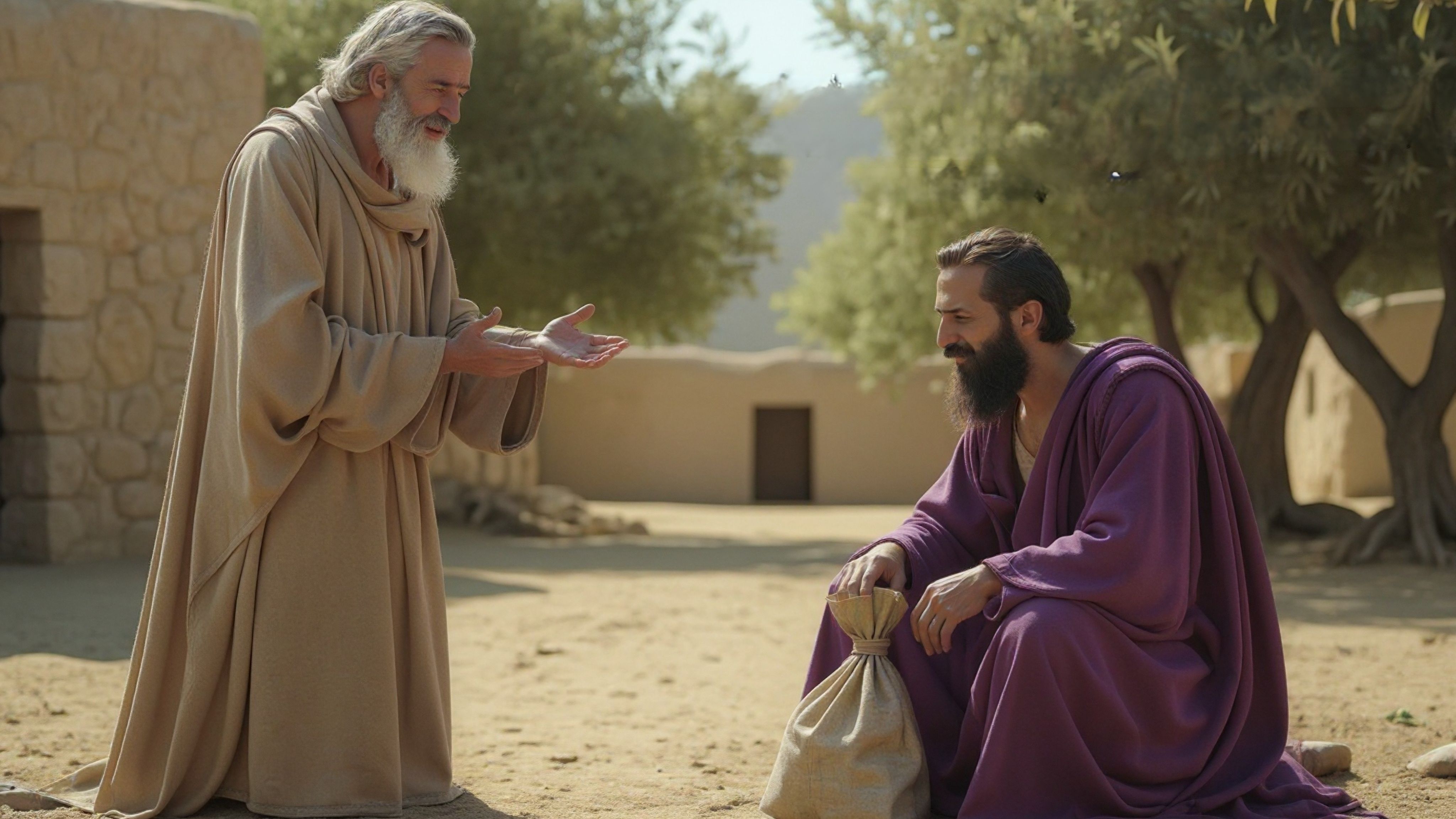Gehazi: Portfolio of a Greedy Heart

Last week, I shared some thoughts about the servants in 2 Kings 5—the quiet, behind-the-scenes figures who never get name recognition but still moved a story forward in powerful ways. I challenged you to consider whether you might have the right message in the right place at the right time, even in everyday life.
But there’s one servant in that story who gets more attention than all the others combined. His name was Gehazi.
Do you recall the story of Naaman, the commander of the Aramean army? He was a mighty warrior with the terrible disease of leprosy who traveled to Israel to seek healing through the prophet Elisha. After meeting with Elisha, Naaman reluctantly obeyed the prophet’s instruction to dip himself seven times in the Jordan River. And just like that, he was miraculously healed. Overjoyed, Naaman offered Elisha a generous gift in gratitude. But Elisha refused. Flat-out. The prophet was not in it for profit.
But Gehazi saw an opportunity. He slipped away, caught up to Naaman, and spun a quick, believable lie about visitors needing supplies. And he walked away with silver and a couple of sets of clothes—a nice little addition to his savings account. No one would ever know.
No one will ever know, he likely whispered to himself.
Only someone knew.
The Mystery Items in the List
When Gehazi got back, Elisha confronted him. I imagine the scene as tense as a courtroom cross-examination, the look on Gehazi’s face a mix of surprise and shame as Elisha asks:
“Is it a time to receive money and to receive clothes, olive groves, vineyards, sheep, oxen, and male and female servants?” (2 Kings 5:26, NASB)
Gehazi was busted. Elisha was clearly speaking by the Spirit of God. He knew precisely where Gehazi had gone and what he had done. He specifically described the items his servant had received and hidden away: Is it a time to receive money and to receive clothes . . .
But I pause here to ask a question. Did you notice the rest of the list?
Silver and clothes—yes, Gehazi had those. But olive groves? Vineyards? Sheep, oxen, servants? Gehazi didn’t take any of those.
Greed’s Portfolio
So why mention olive groves, vineyards, sheep, oxen, and servants—a whole portfolio Gehazi never touched? Was God giving bad information? Did Elisha mishear the Spirit? Or maybe something deeper was at work.
There are two possible explanations for this extended list.
First, Elisha may have been revealing what was actually in Gehazi’s heart. These weren’t random items—olive groves, vineyards, flocks, servants—they were the status symbols of the day. Like most people with greed in their hearts, Gehazi wasn’t just after stuff; he was after status. He wanted the kind of life these things represented. By naming them, Elisha was pulling back the curtain on his servant’s deeper desires.
That made me think about our own desires and dreams. What do our choices—especially the hidden ones—say about what we truly want? And what would we sell out to have them?
Second, the extended list could be a warning about the slippery slope of greed. By naming more than Gehazi took, Elisha may have been intentionally exaggerating to show how small compromises rarely stay small. Greed is like a snowball rolling downhill—it always picks up two things: more speed and more snow. What starts as a couple of sets of clothes and a little silver can lead to far bigger grabs, bigger lies, and bigger consequences. The extended list could be Elisha’s way of saying, “This is where this path leads if you don’t stop now.”
Mercy in Misery
By this point in the story, it’s easy to see Gehazi as nothing more than an object lesson—a living proverb warning us about the dangers of greed. And in some ways, he is. Elisha sadly told him that the leprosy that had clung to Naaman would now cling to him and his descendants forever. It feels final. Tragic. Too late to turn back.
But what if—even in that moment of judgment—there was still an act of grace?
Leprosy would make for a miserable life, no doubt. But greed? Greed makes for a miserable eternity. If this disease caused Gehazi to stop chasing wealth and status, to stop lying and scheming, and to start dealing honestly before God, then in a strange way, it could have been God’s mercy disguised as misery.
God’s discipline is never just about punishment. It’s about rescue. What we hide from people is still seen by God. Sin hidden on earth is already exposed in heaven. So when He exposes it here, He’s not doing it to shame us—He’s doing it to save us.
Gehazi’s story warns us against greed. It warns us that you may get what you want, but you may lose what you need. That stack of silver and change of clothes cost him his health, his reputation, and even his ministry alongside the prophet.
But Gehazi’s tragic end reminds us that God is far more interested in delivering us from sin than He is in losing us to it. If your desires are pulling you away from God, surrender them while you still have the opportunity to do so. Because in the end, the real danger isn’t what greed might cost you in this life—it’s what it will cost you in the life to come.

